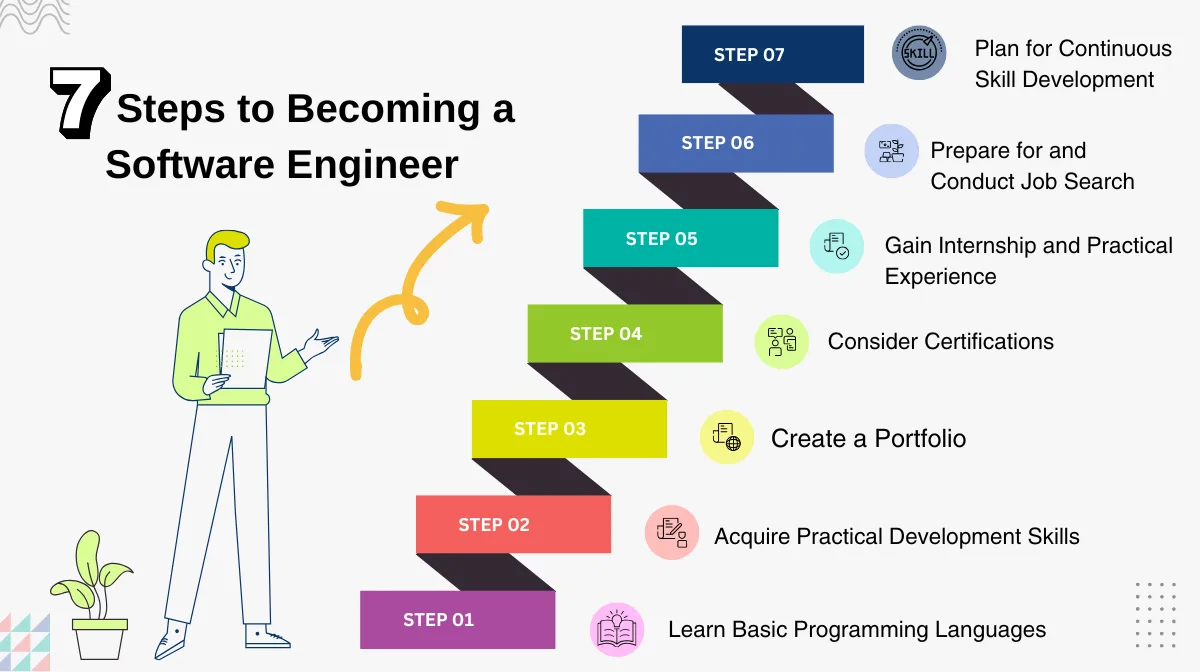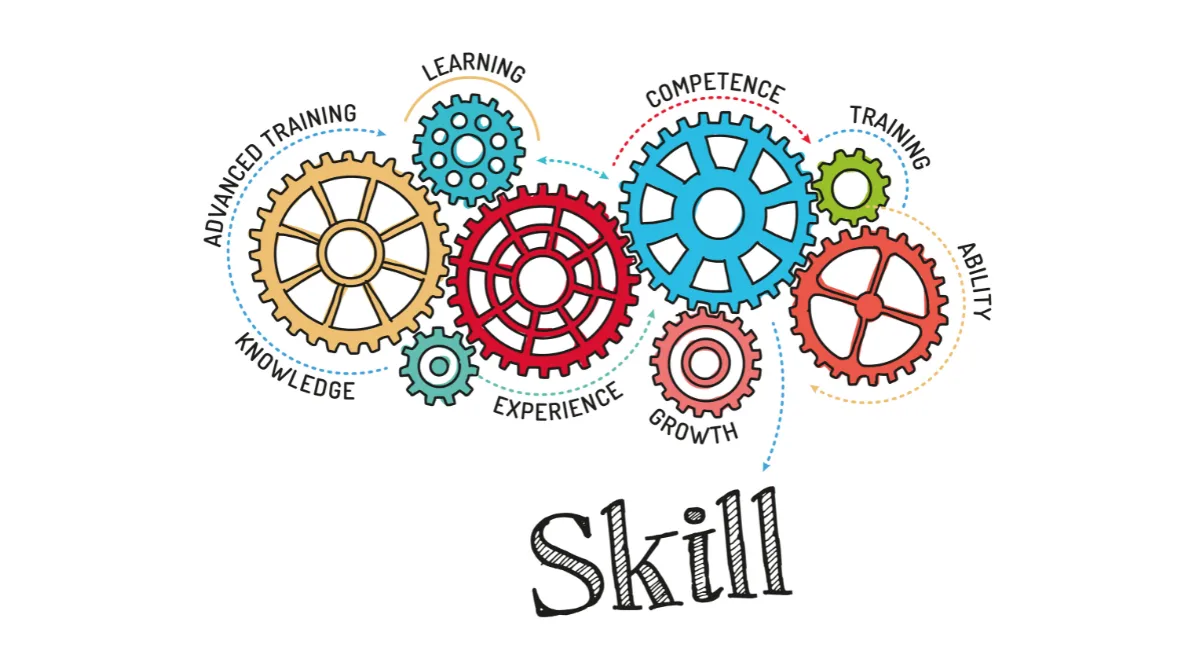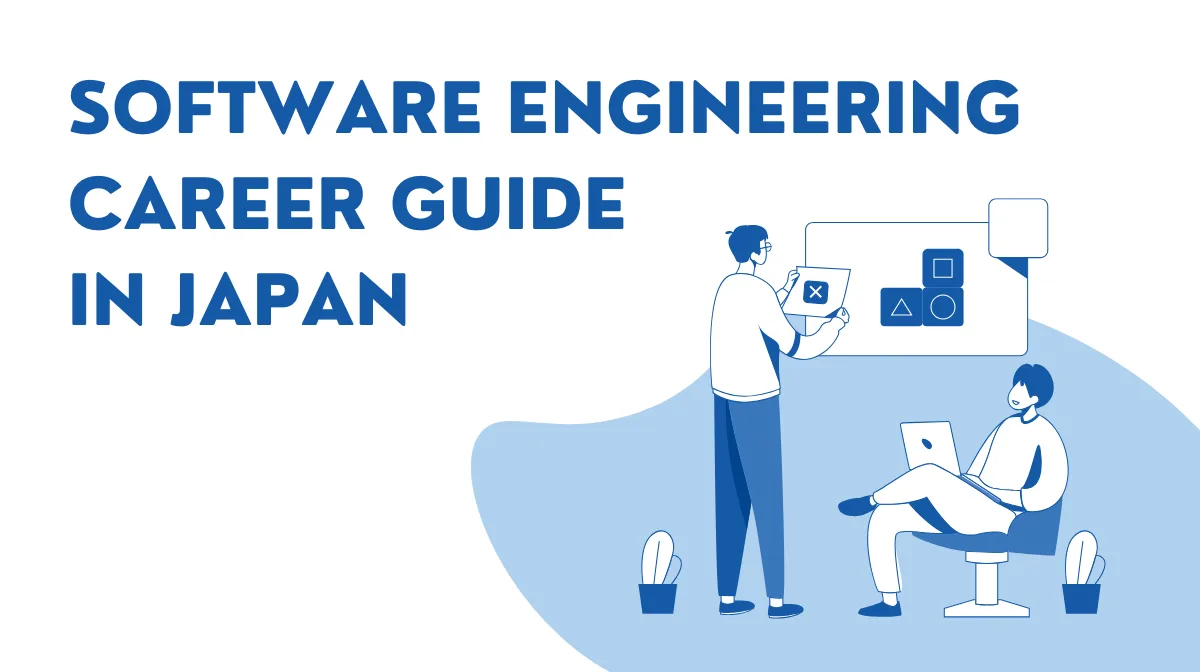According to the Ministry of Economy, Trade and Industry’s “IT Human Resources Supply and Demand Survey,” Japan’s IT industry continues to face a serious talent shortage, with a projected deficit of approximately 790,000 IT professionals by 2030. As a result, software engineers are expected to remain in high demand.
This article provides a detailed explanation of the knowledge, skills, and specific steps needed to become a software engineer in Japan.
1. Current State of the Software Engineering Market in Japan

Japan’s IT talent market is undergoing a major transformation due to technological evolution and accelerating digital transformation (DX). While the demand for software engineers is rapidly increasing and the talent shortage is becoming more severe, career opportunities are expanding.
Severe Talent Shortage and Growing Demand
Japan’s software engineering market faces an unprecedented talent shortage. According to the Ministry of Economy, Trade and Industry’s “IT Human Resources Supply and Demand Survey,” there is expected to be a shortage of up to 790,000 IT professionals by 2030.
This serious situation is primarily driven by increased demand due to DX acceleration and ongoing maintenance and operation needs for existing systems. Furthermore, the declining working population due to the aging society and delays in IT education systems are exacerbating the talent shortage.
Increasing Trend in Foreign Engineer Recruitment
Many Japanese companies are actively recruiting foreign engineers to address the talent shortage.
According to a Ministry of Health, Labour and Welfare survey, as of October 2023, the number reached 85,000, showing a significant increase of 12.4% compared to the previous year and roughly tripling over the past decade (this trend is expected to continue).
This trend is driven by efforts to diversify talent with global expansion in mind and an increase in companies adopting English as their official internal language. The introduction of preferential immigration status through the Highly Skilled Professional Points System has also encouraged the recruitment of foreign IT professionals.
Average Annual Income and Future Prospects
The market value of software engineers is steadily rising. Here are some examples
Software Engineer Salary Model
- Entry-level (New graduates): Monthly salary 220,000-250,000 yen (Annual income 3-4 million yen)
- 3-5 years experience: Annual income 4-6 million yen
- 5+ years experience: Annual income 6-8 million yen or more
- Senior engineers/architects: Annual income can often reach 8-12 million yen or more
Factors indicating market potential include the spread of cloud computing, rapid growth in AI and machine learning fields, increased software demand due to IoT device proliferation, and growing security-related demands.
Demand is particularly high in cloud infrastructure, data science, mobile application development, and cybersecurity fields.
2. Seven Steps to Becoming a Software Engineer

The path to becoming a software engineer requires systematic learning and practical experience.Here are seven specific steps to help beginners build a career as an engineer.
Step 1: Learn Basic Programming Languages
Learning programming basics is the first step to becoming an engineer.
It’s recommended to start with
- Python: Beginner-friendly and versatile
- JavaScript: Essential for web development
- Java: Widely used in enterprise systems
- HTML/CSS: Foundation for web frontend development
These languages can be efficiently learned through online learning platforms, programming schools, and technical books.
Reference: Python Japan, MDN Web Docs (JavaScript), Java, MDN Web Docs (HTML/CSS)
Step 2: Acquire Practical Development Skills
After learning programming language basics, it’s important to acquire practical skills.
To gain real development experience
- Develop personal projects
- Contribute to open-source projects
- Participate in hackathons and coding contests
Additionally, gaining team development experience allows for technical skill acquisition in a more practical setting.
Step 3: Create a Portfolio
Creating a portfolio to demonstrate your technical skills is crucial for job hunting.
Effectively showcase your technical abilities and problem-solving skills through
- Code management on GitHub
- Personally developed applications
- Technical blog posts
Make your portfolio more convincing by carefully explaining technology choices and development processes for each project.
Reference: GitHub Japan
Step 4: Consider Certifications
Obtaining industry-recognized certifications proves technical competency.
National Certifications
- Fundamental Information Technology Engineer Examination
- Applied Information Technology Engineer Examination
Vendor Certifications
- AWS Certifications
- Oracle Certifications
It’s recommended to choose and pursue certifications appropriate for your target role and field.
Reference: Fundamental Information Technology Engineer Examination, Applied Information Technology Engineer Examination, AWS Certifications, Oracle Certifications
Step 5: Gain Internship and Practical Experience
Gaining experience in actual development environments greatly contributes to growth as an engineer.
You can gain practical experience through various means such as long-term internships, development assistant part-time jobs, and corporate training programs.
These experiences help understand working methods and necessary skills in actual development environments.
Step 6: Prepare for and Conduct Job Search
Effective job hunting requires thorough preparation.
It’s important to systematically prepare resumes, cover letters, technical interview preparation, company research, and portfolio updates and improvements. Also, clearly identify your strengths and motivation to effectively present them during interviews.
Step 7: Plan for Continuous Skill Development
Technology evolves very rapidly, making continuous learning essential.
It’s important to continuously improve your skills through various methods such as keeping up with new technologies, attending technical conferences, continuing online learning, and participating in technical communities.
■日本でエンジニアとしてキャリアアップしたい方へ
海外エンジニア転職支援サービス『 Bloomtech Career 』にご相談ください。「英語OK」「ビザサポートあり」「高年収企業」など、外国人エンジニア向けの求人を多数掲載。専任のキャリアアドバイザーが、あなたのスキル・希望に合った最適な日本企業をご紹介します。
▼簡単・無料!30秒で登録完了!まずはお気軽にご連絡ください!
Bloomtech Careerに無料相談してみる
3. Essential Technical Skills and Knowledge

Modern software engineers need a wide range of technical skills and deep specialized knowledge.
Let’s look at the important skill sets to acquire, from basic programming languages to practical development tools.
Core Programming Languages
Modern software engineers are required to master multiple programming languages.
Backend Development
- Java and Spring Framework as standard enterprise system languages
- Python for data processing and machine learning
- PHP for web application development
Frontend Development
- JavaScript/TypeScript with frameworks like React and Vue.js
- Basic web technologies including HTML5/CSS3
Development Tools and Frameworks
Understanding various tools and frameworks is necessary for efficient development. Version control systems like Git/GitHub are particularly important as they form the foundation for team development code management.
Using integrated development environments like VSCode and IntelliJ IDEA, and CI/CD tools like Jenkins is also important.
For infrastructure, understanding cloud services like AWS, Google Cloud, Azure, and database technologies like MySQL and PostgreSQL is required.
Basic Computer Science Knowledge
Theoretical knowledge forming the foundation of software development is also important. Understanding algorithms and data structures is fundamental to writing efficient programs.
Understanding software design principles such as object-oriented design, design patterns, and SOLID principles is also necessary. System design requires knowledge of microservices, RESTful API design, and security understanding.
4. Importance of Non-Technical Skills

Beyond technical capabilities, modern engineers need non-technical skills like communication abilities and project management skills. Let’s explain how these soft skills are utilized in actual development environments.
Need for Communication Skills
In software development, communication skills are as important as technical skills. Daily communication is essential for participating in technical discussions within teams, reporting progress, and sharing issues.
In client relationships, abilities in requirement gathering, explaining technical content clearly, and making proposals are required. Effective documentation and presentation skills are also important for growth as an engineer.
Teamwork and Project Management
Modern software development is fundamentally team-based.
Required skills include
- Cooperation
- Project management ability
- Supporting other members
- Knowledge sharing
- Constructive discussion
- Task management
- Schedule coordination
- Risk management
Especially in agile development, understanding and practicing Scrum, participating in daily standups, and reporting results in sprint reviews are required to fulfill your role as a team member.
Importance of Business Understanding
Beyond technical skills, having a business perspective is important. Understanding client business models, industry knowledge, market trends, and competitive analysis is necessary.
Cost consciousness is also required, including pursuing development efficiency, optimizing resources, and considering return on investment. Problem-solving abilities are also important skills, including essential understanding of requirements, priority judgment, and proposing effective solutions.
■日本でエンジニアとしてキャリアアップしたい方へ
海外エンジニア転職支援サービス『 Bloomtech Career 』にご相談ください。「英語OK」「ビザサポートあり」「高年収企業」など、外国人エンジニア向けの求人を多数掲載。専任のキャリアアドバイザーが、あなたのスキル・希望に合った最適な日本企業をご紹介します。
▼簡単・無料!30秒で登録完了!まずはお気軽にご連絡ください!
Bloomtech Careerに無料相談してみる
5. Points Valued by Hiring Companies

Companies look at more than just pure technical ability when hiring engineers. Let’s explain in detail the various aspects that hiring managers value, including practical skills, teamwork ability, and growth potential.
Technical Evaluation Criteria
Companies evaluate technical skills comprehensively, centered on coding ability.
Abilities that are valued and evaluated
- Algorithm implementation skills
- Code quality and readability
- Implementation ability considering maintainability
- Technical problem-solving skills
- Debugging skills
- Performance optimization ability
Practical skills: Companies also focus on work deliverables, personal projects, open-source contributions, full-stack development capabilities, ability to catch up with new technologies, and understanding of development toolchains.
Workplace Adaptability
Adaptability is crucial for working as a team member. Japanese communication skills, technical explanation ability, and information sharing capabilities within teams are required.
Team development participation attitude, approach to code review, and proactiveness in knowledge sharing are also evaluated. Basic business manners such as time management, reporting-communication-consultation practices, and understanding Japanese workplace etiquette are essential.
Growth Mindset and Learning Ability
Companies highly value continuous growth motivation. Self-development efforts like studying technical books, taking online courses, and attending technical conferences are evaluated.
Having clear career vision and aiming for planned skill improvement and specialty pursuit are also important. Proactive behavior like voluntary improvement suggestions, proposing new technology adoption, and active project participation are highly valued.
6. Specific Approach to Job Hunting and Career Change

Strategic approach is necessary for successful job hunting or career change as an engineer. Here are practical advice and specific preparation methods from effective resume creation to interview preparation.
Creating Effective Resumes and Portfolios
Creating effective resumes that catch recruiters’ attention is important. Clearly state qualifications, technical stack details, past achievements and results.
Effectively showcase your strengths by describing specific numerical achievements, problem-solving cases, and technical contributions in detail.
On GitHub profiles, demonstrate practical skills through code quality, project descriptions, and commit history. Writing technical blogs, sharing problem-solving processes, and disseminating technical insights are effective ways to showcase expertise.
Interview Preparation and Technical Interview Preparation
For interviews, prepare to clearly explain your strengths, technical background, and career vision. Thoroughly research companies and prepare to specifically discuss technical stack compatibility and growth opportunities.
For technical interviews, prepare for algorithm problems, system design exercises, and coding tests. Also recommend preparing to specifically explain past projects, technology selection reasoning, and troubleshooting cases.
7. Work Visa Requirements

Obtaining appropriate work visas is essential for foreign engineers to work in Japan. Let’s explain in detail the visa requirements, application process, and visa support system to check when choosing companies.
Requirements for “Engineer/Specialist in Humanities/International Services” Work Visa
To work as an IT engineer in Japan, obtaining an “Engineer/Specialist in Humanities/International Services” work visa is necessary.
Basic requirements
- Graduation from university/technical school in IT-related field
- Holding IT-related certifications
- Guaranteed salary level equal to or higher than Japanese counterparts is also an important condition
Technical requirements can typically be proven through academic credentials like IT-related degrees, major subject certificates, and transcripts. IT-related certifications like Information Technology Engineer Examinations and vendor certifications are also valid.
Work experience can sometimes substitute, but specific job content and duration must be clearly demonstrated.
How to Obtain “Engineer/Specialist in Humanities/International Services” Work Visa
The visa process begins with preparing necessary documents.
Required documents include Certificate of Eligibility application form, passport copy, ID photos, resume from the individual, plus employment contract, company registration, business description, salary payment certificate from the company.
The application process starts with obtaining a Certificate of Eligibility. After applying to immigration, the review period takes about 1-3 months.
After receiving the certificate, proceed with visa application at overseas diplomatic missions. With all documents properly prepared, visa can be obtained relatively smoothly.
Choosing Companies with Work Visa Support
It’s recommended to choose companies with established visa support systems for smooth work visa acquisition.
Many companies provide support as application agents, helping prepare necessary documents, assisting with application form creation, and negotiating with immigration.
Companies increasingly provide life support like housing search, bank account opening, and various procedure guidance.
Points to check when evaluating support systems
- Presence of experienced staff
- Foreign language support availability
- Past support track record
Follow-up support like residence period renewal, family visa support, and long-term career support are also important selection criteria.
For first-time workers in Japan
Choosing companies with comprehensive support systems enables smooth start of working in Japan.
While procedures are somewhat complex, appropriate support ensures reliable visa acquisition and career start as an engineer in Japan.
As various procedures like residence period renewal and status changes are needed after visa acquisition, recommend choosing companies with long-term support systems.
8. Building a Career as a Software Engineer in Japan
Software engineers are essential in modern digitalized society. Beyond technical skills, it’s important to acquire comprehensive skills including communication ability and problem-solving skills.
Aim to build a career leveraging your strengths through planned learning and practice. With proper preparation and effort, paths will surely open up.


















